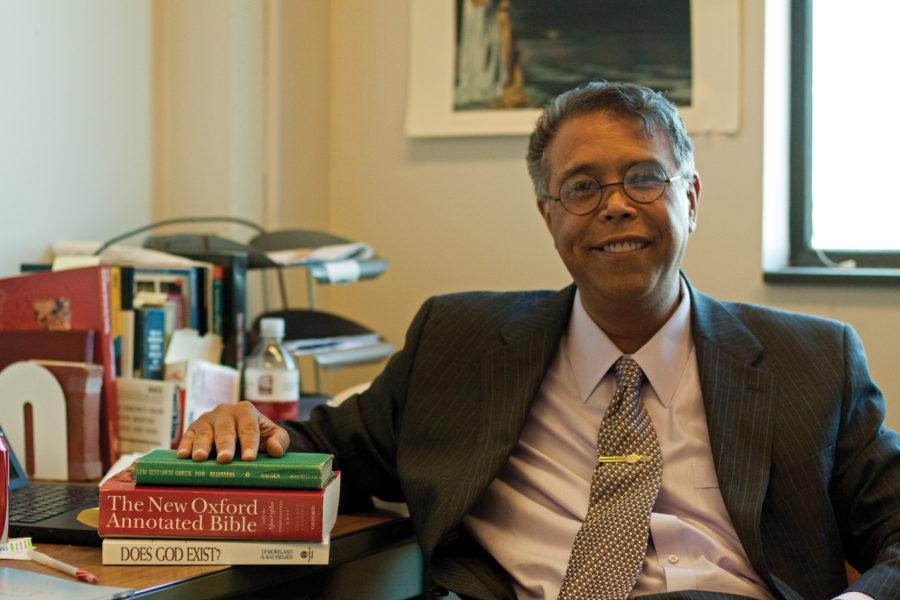Avalos gives 9/11 lecture on violence and religion
Bryan Langfeldt/Iowa State Daily
Hector Avalos, professor of philosophy and religious studies, explains his reasoning and logic regarding being an atheist. His curiosity in Christianity’s background led Avalos to become atheist.
September 4, 2011
Religious philosophies will be challenged tonight as award-winning professor Hector Avalos offers a commemorative 9/11 lecture about the relationship between religion and violence.
The lecture, Religion and Violence: A New Theory for an Old Problem, is open to all and will include a discussion about the religious factors in violence.
Avalos will summarize his book, Fighting Words: The Origins of Religious Violence, and discuss his scarce resource theory to explain the role of religion in violence.
Avalos will also discuss how the study of religion and violence has changed since 9/11 and how the role of religion and violence may be approached in the future.
Avalos, professor of religious studies and adviser to the Iowa State Atheist and Agnostic Society, has authored several books, and was named Professor of the Year at ISU in 1996.
Avalos has given lectures, participated in debates and has even been featured as a guest speaker at several churches.
In several of Avalos’ lectures and publications, he argues that all faith-based claims are equally unverifiable and that religious rationale leads to conflict and violence.
“Faith claims, by their very nature, will cause conflict because there’s no way to objectively settle arguments,” Avalos said.
“If faith claims cause conflict, then the solution is to not use faith claims to settle arguments. You can settle arguments by fact and reason.”
Avalos’ experience will be showcased tonight with his use of several examples and metaphors that offer a different look into faith-based philosophies.
He hopes that attendees of tonight’s lecture will be intrigued and allow themselves to look at things in different ways.
“I hope to make people aware of the religious factors in violence, educate people about alternatives and make people self-aware of their own communities,” Avalos said.
“I hope to provoke questions and create interest, and I hope people will leave thinking, ‘I never thought of it that way.'”
Avalos’ lecture will begin at 6:30 p.m. in the South Ballroom at the Memorial Union, and is free and open to all.







